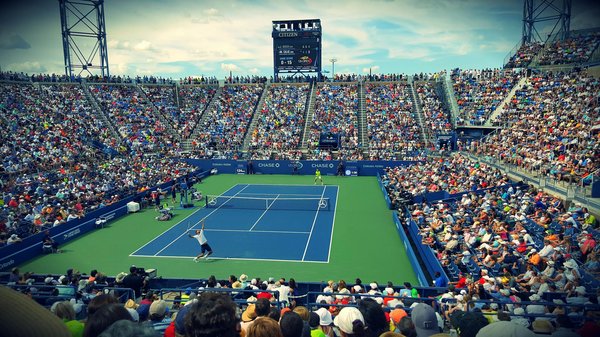Essential Technical Skills for Combat Sports in the UK
Developing strong technical combat skills is crucial for success in any combat sport, whether boxing, MMA, or judo. Mastering the combat sports fundamentals ensures athletes have a reliable base from which to build advanced tactics and strategies. In the UK, there is a notable emphasis on the progressive nature of skill acquisition, with local training programs prioritizing step-by-step development of techniques tailored to each discipline.
Understanding how to execute basic moves—such as proper stance, striking form, grappling holds, and defensive maneuvers—is essential. These techniques are not only the building blocks of competition performance but also enhance safety during training and fights. The UK’s focus on solid technical training helps fighters reduce injury risk while improving efficiency.
Central to this progression is the involvement of qualified coaching. Experienced UK coaches provide structured guidance that ensures learners grasp key technical elements thoroughly before advancing. This coaching model supports continuous skill refinement and adjusts techniques to each athlete’s strengths. Consequently, combat sports practitioners in the UK benefit from a system designed to fortify UK sports techniques from the ground up, enabling confident and competent performance across varied combat disciplines.
Physical Attributes: Strength, Agility, and Endurance
Physical conditioning forms the cornerstone of combat sports training UK. Athletes must develop a balanced mix of strength, agility, and cardiovascular endurance to excel. Strength provides the power behind strikes and grappling moves, while agility enhances reaction time and movement fluidity. Endurance supports sustained performance throughout rounds without degradation.
UK gyms emphasize diverse preparation methods. Weightlifting and resistance training build muscular strength, focusing on functional movements that translate directly into combat scenarios. Plyometric drills and ladder exercises enhance speed and coordination, essential for rapid attacks and evasions. Cardiovascular fitness is honed through high-intensity interval training (HIIT), road running, and circuit workouts to maximize stamina.
Balancing muscle development with speed is crucial for athlete development. Overemphasis on bulk can reduce mobility, increasing injury risks. Hence, trainers in combat sports training UK prioritize protocols that strengthen muscles while maintaining flexibility. Injury prevention strategies such as dynamic stretching, proper technique training, and active recovery routines also support long-term athletic progress. Ultimately, this holistic approach ensures fighters are physically primed to meet the demanding challenges of their sport without compromising durability.
Mental Skills: Discipline, Resilience, and Focus
Mastering mental toughness is essential for success in combat sports, especially for UK athletes aspiring to reach elite levels. Discipline forms the foundation: maintaining consistent training schedules and adhering to strict routines builds the stamina required for peak performance. Discipline goes beyond physical effort; it includes diet management, rest, and mental preparation.
Resilience is another critical component. Setbacks such as injuries or losses are unavoidable, but developing resilience helps fighters bounce back stronger. Techniques like reframing failures as learning experiences and maintaining long-term motivation keep athletes engaged despite challenges.
Focus, a cornerstone of combat sports psychology, sharpens a fighter’s ability to perform under pressure. UK fighters often use visualization and mindfulness to hone their concentration, ensuring they remain present during bouts rather than distracted by external stressors. These mental preparation techniques not only enhance reaction times in the ring but also build confidence.
Incorporating these three skills together creates a robust mindset. This blend of discipline, resilience, and focus enables UK competitors to thrive in high-stakes environments and push beyond limits that others might find daunting.
Tactical and Strategic Abilities
In combat sports strategy, developing a competitive edge hinges on more than physical prowess. A crucial skill is analysing opponents effectively to identify patterns or weaknesses. Fighters trained in the UK often emphasize this, fostering situational awareness that allows quick, informed decision-making mid-fight.
Adapting fight tactics UK practitioners use means modifying techniques in response to the opponent’s style or unexpected actions. This dynamic approach ensures a fighter remains unpredictable and responsive rather than rigidly sticking to a pre-set plan.
Strategic training approaches promote varied drills focusing on both offensive and defensive adaptability, reinforcing mental flexibility as well as physical readiness. Sparring sessions commonly include simulated scenarios to refine decision-making skills under pressure.
Situational awareness, a cornerstone of combat sports strategy, involves keen observation of the opponent’s mood, stamina, and positioning. This insight can be decisive in timing attacks or counterattacks effectively and preserving energy for critical moments.
Ultimately, combining tactical analysis with swift adaptation in the heat of a bout is what distinguishes top-level fighters, giving them the competitive edge that often determines victory.
Pathways, Training Resources, and Professional Guidance in the UK
Aspiring athletes in UK combat sports have access to well-structured UK combat sports pathways designed to develop talent effectively. Leading organisations such as British Boxing Board of Control, England Karate Federation, and British Judo Association provide clear routes from grassroots to elite levels. These bodies often collaborate with regional clubs and associations, creating a network to support progression.
Local clubs play a vital role by offering training resources including expert coaching, technique workshops, and conditioning programmes. Accessing these clubs typically involves joining community gyms or specialised combat sports centres, which often hold open days or talent identification events. These opportunities enable promising athletes to connect directly with established coaches and peers.
Professional coaching advice is crucial. Guidance from experienced mentors can refine skills, enhance strategy, and provide psychological support—factors vital for competitive success. Many athletes benefit from professional networks that offer continuous development, performance feedback, and career advice. Community support also fosters motivation and resilience, essential traits cultivated throughout the UK combat sports pathways. Engaging with such resources early can significantly impact an athlete’s growth and long-term achievement in their discipline.
